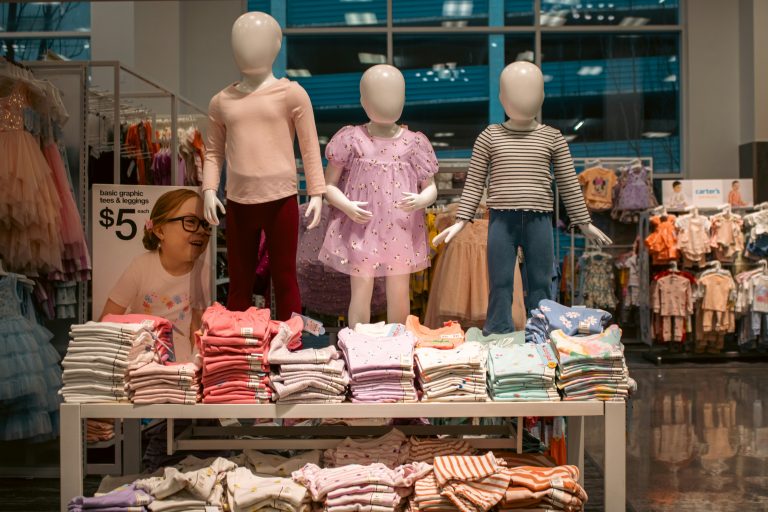What Is Foseting and is it for you?
What Is Fostering?
Fostering is the act of providing a temporary, safe, and nurturing home for children who cannot live with their birth families. These children may have been removed from their homes due to neglect, abuse, or family crises. Fostering offers them stability and care while decisions about their long-term future are made, whether that means returning to their birth family, being adopted, or moving to another permanent placement.
Fostering is different from adoption in that it is usually temporary. While some placements last only a few days, others may last months or even years. Foster carers play a crucial role in ensuring that children feel safe, supported, and loved during this uncertain period in their lives.
The Role of a Foster Carer
Foster carers are responsible for much more than just providing food and shelter. They must create a nurturing, stable, and loving home where children feel secure and valued. Their main responsibilities include:
- Providing Emotional Support – Many foster children come from traumatic backgrounds and need reassurance, patience, and understanding.
- Meeting Physical and Educational Needs – Foster carers ensure children receive proper nutrition, healthcare, and education.
- Encouraging Positive Behavior and Development – They help children build self-esteem, develop social skills, and establish healthy routines.
- Working with Professionals – Foster carers regularly communicate with social workers, therapists, teachers, and other professionals involved in the child’s care.
- Supporting Contact with Birth Families (if appropriate) – Some children in care maintain contact with their birth families, and foster carers may facilitate these visits.
Fostering is a full-time commitment that requires emotional resilience, adaptability, and a willingness to advocate for a child’s needs.
Types of Children You Could Foster
Foster children come from a variety of backgrounds and may have different needs. Some common types of foster placements include:
- Short-Term Placements – Temporary care for a child while social services determine their long-term future.
- Long-Term Placements – Providing care for children who may not be able to return to their birth families and need stability until adulthood.
- Emergency Foster Care – Taking in children at very short notice, sometimes in the middle of the night, when they need immediate protection.
- Sibling Groups – Many siblings enter foster care together and need to be placed in the same home to avoid further separation.
- Children with Disabilities or Special Needs – Some children require foster carers who can provide additional support for physical, emotional, or learning disabilities.
- Teenagers – Often the most challenging but rewarding, teenagers in foster care may need extra guidance, structure, and emotional support.
- Parent and Child Placements – Some foster carers support young parents (usually teenage mothers) to help them care for their own child in a safe environment.
Each child is unique, and their past experiences will shape their behaviors and needs. Foster carers must be prepared for the emotional and behavioral challenges that come with fostering, while also celebrating the resilience and growth of the children they care for.
How Much Do Foster Carers Get Paid?
Foster carers receive a weekly allowance for each child they care for. The amount varies based on several factors, including:
- The child’s age and needs
- The foster carer’s experience and training level
- The type of fostering (e.g., emergency placements may receive higher payments)
- The location (different regions offer different rates)
On average, foster carers in the UK receive between £150 – £500 per week per child, with specialist placements (e.g., children with disabilities) offering higher allowances.
However, fostering is not a way to “make money”, the allowance is intended to cover the costs of caring for the child, including:
- Food and Clothing – Ensuring the child has a balanced diet and appropriate clothing.
- Education and Activities – Covering school trips, books, and extracurricular activities.
- Transport – Fuel costs for school runs, doctor’s appointments, and family visits.
- Household Expenses – Extra utilities, furniture, and supplies needed for the child.
- Recreation and Hobbies – Allowing the child to enjoy hobbies and social activities to support their development.
Fostering is a full-time responsibility, not just a financial arrangement. The money provided is there to enhance the child’s life and well-being, not as an income for the carer.
Fostering Is Not an Easy Route or a ‘Cash Cow’
Some people assume that fostering is an easy way to earn money, but this is far from the truth. Fostering is demanding, emotionally intense, and requires dedication 24/7. It involves:
- Managing challenging behaviors due to past trauma.
- Attending meetings, training, and paperwork as part of the foster system.
- Coping with emotional attachment when a child moves on.
- Advocating for a child’s needs, often in difficult situations.
Foster carers must be fully committed to helping vulnerable children, not just looking for financial support. Social services thoroughly assess prospective carers to ensure they are motivated by the right reasons.
How Fostering Impacts Your Life, Your Family, and the Child’s Life
Fostering affects not just the carer but everyone around them, from their immediate family to close friends.
Impact on the Foster Carer
Fostering can be incredibly rewarding, but it also demands emotional resilience. Carers often experience highs and lows, celebrating a child’s progress while also facing the challenges of trauma and loss. However, many carers say that seeing a child grow and heal makes all the hard work worth it.
Impact on the Foster Carer’s Family
Fostering impacts biological children, who must adjust to sharing their home and parents’ attention. Some may struggle with this change, while others find it enriches their understanding of compassion and resilience. Spouses and extended family members also need to be supportive, as fostering is a team effort.
Impact on Friends and Social Life
Fostering can change friendships and social circles. Carers may need to adjust their social life and priorities, sometimes stepping back from spontaneous outings or trips. True friends will understand and offer support, but some relationships may shift.
Impact on the Foster Child
The most significant impact is on the child. For many foster children, entering a stable, caring home is life-changing. They learn what it means to be safe, loved, and valued. Even if a placement is temporary, a foster carer’s kindness and support can positively shape a child’s future.
Final Thoughts: The Life-Changing Impact of Fostering
Fostering is not just about providing a home, it’s about giving a child a second chance at life. Instead of growing up in a children’s home, they have the opportunity to experience love, stability, and security in a family environment.
For the foster carer, the journey is demanding yet rewarding. While fostering requires patience, emotional strength, and dedication, the knowledge that you are changing a child’s future makes every challenge worthwhile.
Fostering is not just a job, it’s a life-changing commitment that creates lasting impact for everyone involved.







